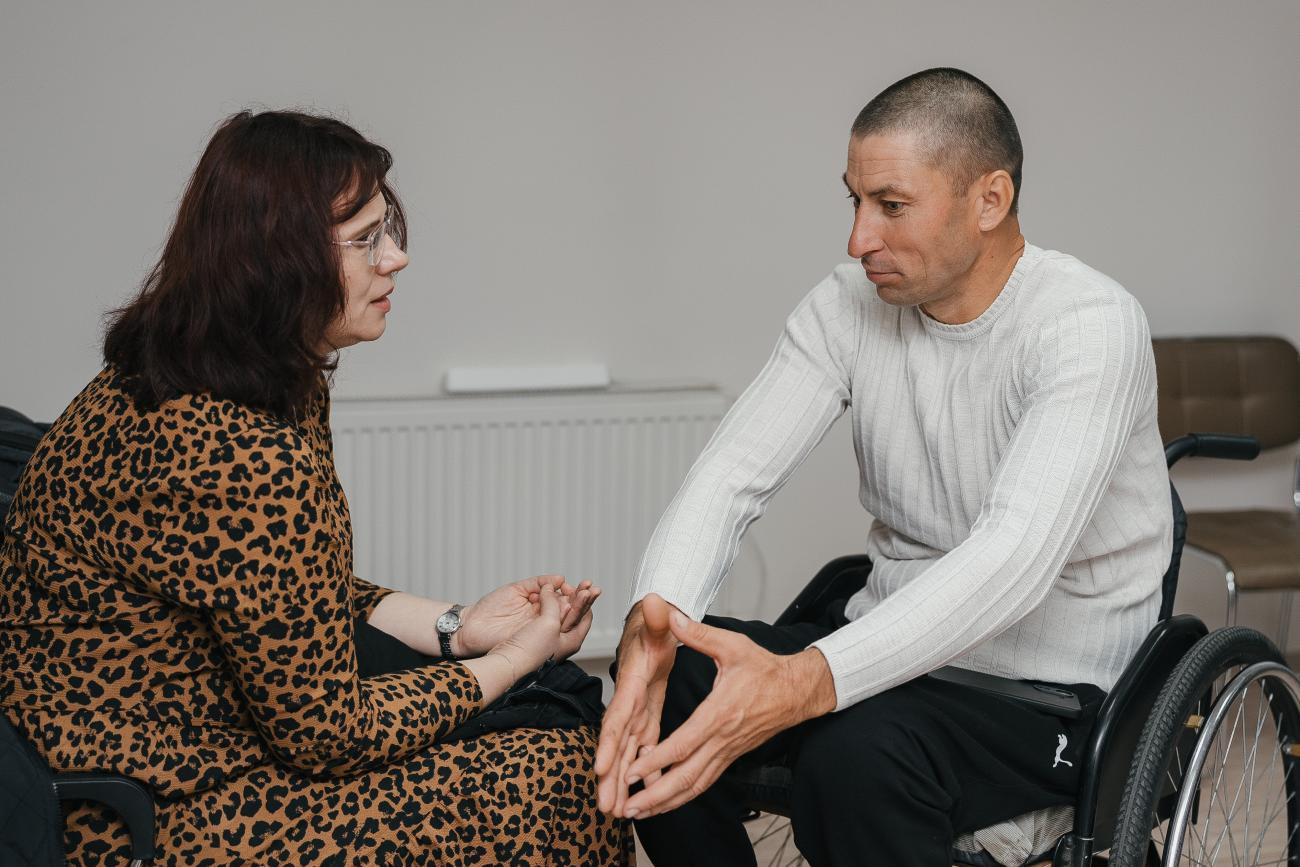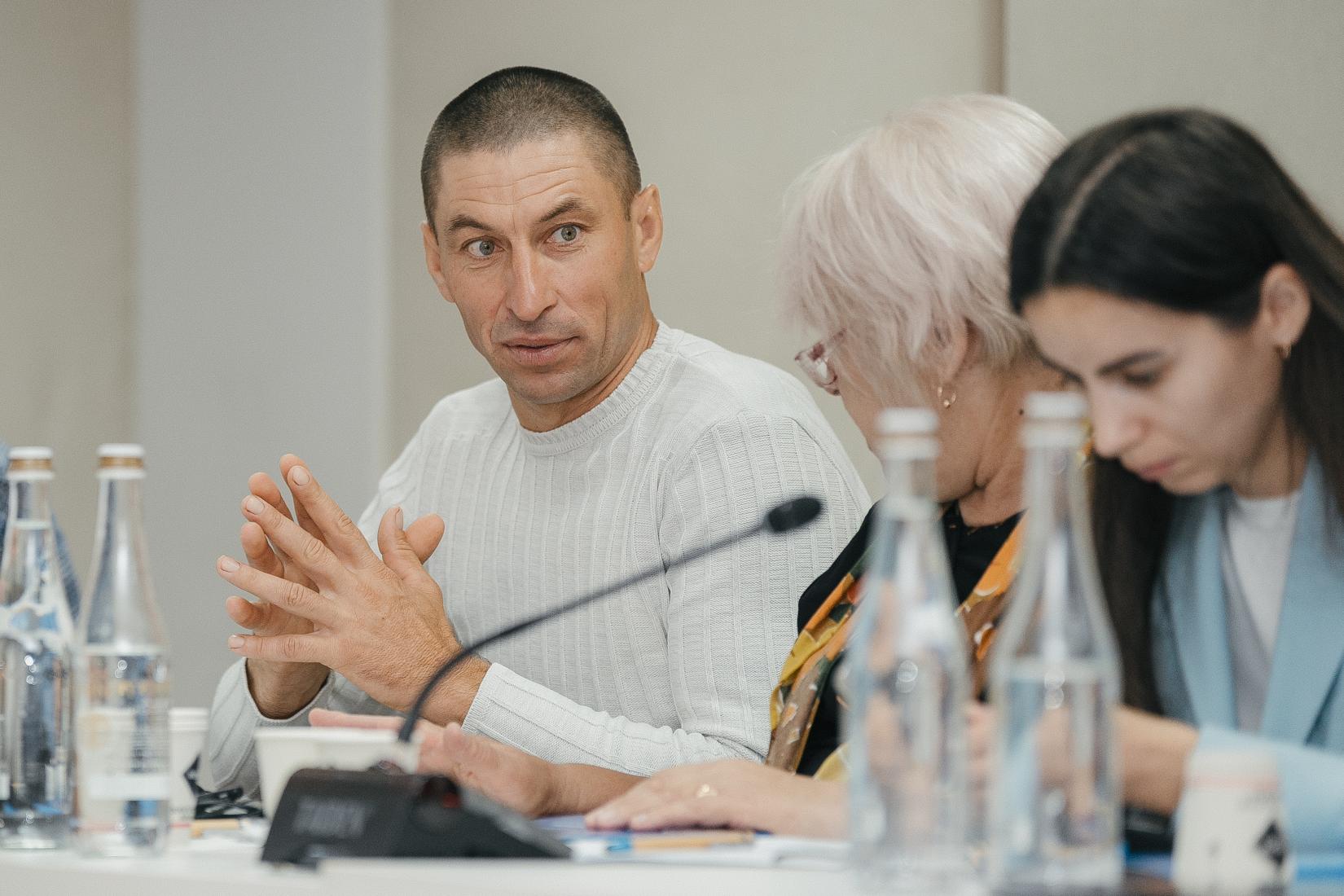Vasile Savca: “I have decided to share my story to encourage persons with disabilities to engage”

Vasile Savca is 44 years old, he was born and lived in Carnateni, Causeni district.
He is convinced that if he is the last person to remain in the village "to turn off the lights", he would still be found there. Carnateni village is about 80 km away from the capital and about 10 km from the district center.
Ten years ago, after a work accident, Vasile ended up being a user of a wheelchair. Although his life has changed significantly since that moment, now he is a man who exudes enthusiasm and good mood, is an extremely involved civic activist, and has a great dream: that all public institutions in Moldova become accessible for persons with disabilities. Since 2021 Vasile has been the deputy chairman of the Causeni District Participation Council. He wants his life story and the situation he has found himself in to inspire and exemplify that “it can be different", while his successes are a living proof of that.
Life before the accident
After about seven years of working abroad, Vasile returned to his village with the intention to open a small business. He bought two specialized trucks and transported different goods from Causeni to Chisinau. In the summer of 2010, he was transporting straw bales for a mushroom growing company. Due to negligence of an employee, two of the bales toppled over Vasile, leaving him immobilized. “Fifteen minutes after the accident, I was already in the hospital, but the intervention was performed only seventy-two hours later, due to lack of money and other bureaucratic reasons. Too much time had passed, and the spinal cord could no longer be restored”, confesses the protagonist with emotion.
I think an inborn disability is otherwise lived, then the one that was acquired during the life.
For a year after the accident Vasile stayed in a straight position only, bedridden. Expensive treatment and trips to the hospitals followed, but unfortunately the situation did not change. The reality had to be accepted, and he needed strength to start all over again.
“You know, I think an inborn disability is otherwise lived, then the one that was acquired during the life.” Vasile shares. “I was ashamed, for example, to go to the doctors. I would wait for all patients to come out, and then go in, even if I had an emergency.”
Until then, Vasile confesses, he had known nothing about the situation of person with disabilities and thought of social projects, as well as NGOs, as “humanitarian aid”. He remembers that when he arrived at the first training organized by the “Motivation” Association in 2014, he said to himself: “I go to the workshop because they have invited me, and after that I will mind my own business, there is nothing I can do anyway”. But it was not so.

Thanks to mentors and training, Vasile's attitude changed significantly, and because he also had a car adapted to his needs, opportunities for civic engagement emerged. In 2016 he got involved in the first project: he monitored accessibility of polling stations. Now civic activism has become his motivation, while engaging in projects provides him a source of income.
He also participated as a councilor on the Carnateni local council list, but chose to change things at the district level, not just in his community. Since 2021, he has been the deputy chairman of the District Participation Council. In the 2018 elections, for example, he monitored accessibility of all polling stations in the district, and now he can be proud that dozens of institutions have become accessible thanks to the projects he has brought for his district.
“Now the building of the district council is also in the process of renovation, it will have an adapted elevator and a ramp. It is a great success and an example for the whole country”, says Vasile enthusiastically.
At home, Vasile does everything. Together with his parents, he has four hectares of land, vineyard, birds and animals. Most of all he likes working in the vineyard.

Regarding the reasons why persons with disabilities are less involved in the decision-making process, Vasile considers that, on the one hand, they face physical barriers when moving around, thus they are always put in the situation to “disturb” someone, and, on the other hand, they do not show interest, expect financial compensation, or remain indifferent.
“I think I know everything about accessibility, and I would like other people in my situation to know at least ten percent of that. It would be a big achievement. I know it is hard to mobilize persons with disabilities, but if you make one step outside your courtyard, seek your rights, discover your passions, you can really achieve a lot, first of all for yourself, but also for other persons with disabilities. I have to confess, the main reason why I have decided to share my story is precisely this: to encourage involvement and reduce indifference”. states Vasile.
***
This story is part of the UN Moldova awareness raising campaign ”Stand for Inclusion of Persons with Disabilities – No One Must Be Left Behind." An initiative that is part of the UN ongoing efforts to promote the inclusive and meaningful participation of persons with disabilities in all their diversity in decision-making processes at all levels.
The story was developed with the financial support of the UN Human Rights Moldova within the project "Paradigm Shift to Disability Inclusive Services, Accountability and Governance in Moldova", implemented by UN Human Rights Moldova, UNDP Moldova, and UNICEF Moldova funded by to the United Nations Partnership for the Rights of Persons with Disabilities (UNPRPD). The views expressed in the paper do not necessarily reflect the official opinion of the UN Human Rights or the UNPRPD.



